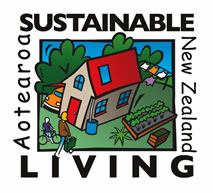
As we reach the end of the first decade in the 21st Century, about one third of the world's population still has no access to electricity, says Harish Hande. In this week's Green Room, he argues that poor people should be at the centre of sustainable energy policies, not on the end of handouts.
 |
 Many assume that renewable energies like solar electricity are too expensive for the poor Many assume that renewable energies like solar electricity are too expensive for the poor 
|
As the world's leaders consider how to finance our battle against climate change, the financing of practical, affordable solutions for poor people in countries like my own, India, appears to be of little interest.
It is nearly 130 years since Thomas Edison gave us the electric bulb, yet more than two billion people on this planet still do not have the luxury of electricity.
Up to 50% of households in India still have no access to modern lighting. Millions of street vendors, whether in the hi-tech city of Bangalore, India, or Kampala, Uganda, still resort to kerosene or candles to sell their meagre wares.
Today, one of the greatest threats to the environment is poverty. Can we go and tell a poor woman in a rural part of a developing country not to cut wood or stop using kerosene for her lighting because it leads to global warming? Does she have a choice?
We've invented iPods and flat-screen TVs, but somehow have not invested in ways to eliminate an Iron Age technology that consumes wood inefficiently and creates harmful indoor air pollution.
Millions of poor households around the world use the classic three-stone cooker to prepare their food, while using wood as the basic fuel.
Millions of trees have to be cut to meet the cooking needs of the poor; for lighting, millions of litres of kerosene are burnt daily. Yet, in this lopsided world, we are spending millions of dollars on finding solutions for the problems created in the West while the poor in developing countries have no choice but to keep harming the environment.
Cheap and continuous
Solutions do exist. Many assume that renewable energies like solar electricity are too expensive for the poor.

Solar power gives remote villages access to clean electricity
|
True, solar panels alone may be "expensive" but if they are combined with affordable financing mechanisms for the poor, they can be rolled out widely and make clean electricity a sustainable and viable option for millions around the developing world.
The poor spend between 10-15% of their meagre income on energy services like lighting and cooking.
This is a much higher percentage than those people who are better off. For example, a typical street vendor in Bangalore pays 15 rupees ($0.32) for four hours of kerosene lighting each day.
On a monthly basis, she therefore pays $9-10 to light her street cart. Today, solar lighting can be provided to her at commercial rates for $5-6 every a month.
The big bonus is that the vendor is able to pay for it on a daily basis, not on a monthly basis. As one street vendor told me: "300 rupees a month is expensive but 10 rupees a day is very affordable."
Much attention has gone in to reducing the cost of the technology, but much less on the details of supply chains and financing.
This would make technologies like solar, bio-gas and small-hydro affordable today, not tomorrow, to the poor.

Clean and cheap electricity has social benefits as well as environmental ones
|
Sustainable forms of energy can also play a key role in income generation - a primary path out of poverty for the millions who do not have access to reliable grid-distributed electricity.
The poor are also victims of inefficiency - they use inefficient sewing machines, bangle making machines and power looms. This results in soaring overall costs.
The blame is placed on renewable energy technologies, not inefficiencies of the appliances.
Many of these devices are produced with the assumption that grid electricity is "infinite" so, especially in the developing world, there is little incentive to make more efficient products.
High-efficiency income-generating appliances would increase the attractiveness of renewable energy technologies - leading to higher incomes.
Solutions are simple and do-able, but require approaches that are focused on the poor.
Many of the policies, products (both financial and technology) and processes are designed with a top to bottom approach.
This can completely bypass the needs of the poor. Technology is pushed down with disastrous consequences; many solar systems used in the rural areas of India do not work well, creating a notion that renewable energies are not reliable.
Clean cooking solutions have been created but with the idea that one size fits all, without considering the different fuel sources, food choices, cooking styles, or the size of the family.
It's high time that the poor become central to energy policies and not just recipients or "project beneficiaries".
Only then will sustainable energy be their ticket out of poverty, as well as a vital way to address climate change.
Harish Hande is managing director of Selco Solar, India
Selco Solar was the 2007 winner of the Outstanding Achievement Award from the Ashden Awards for Sustainable Energy














